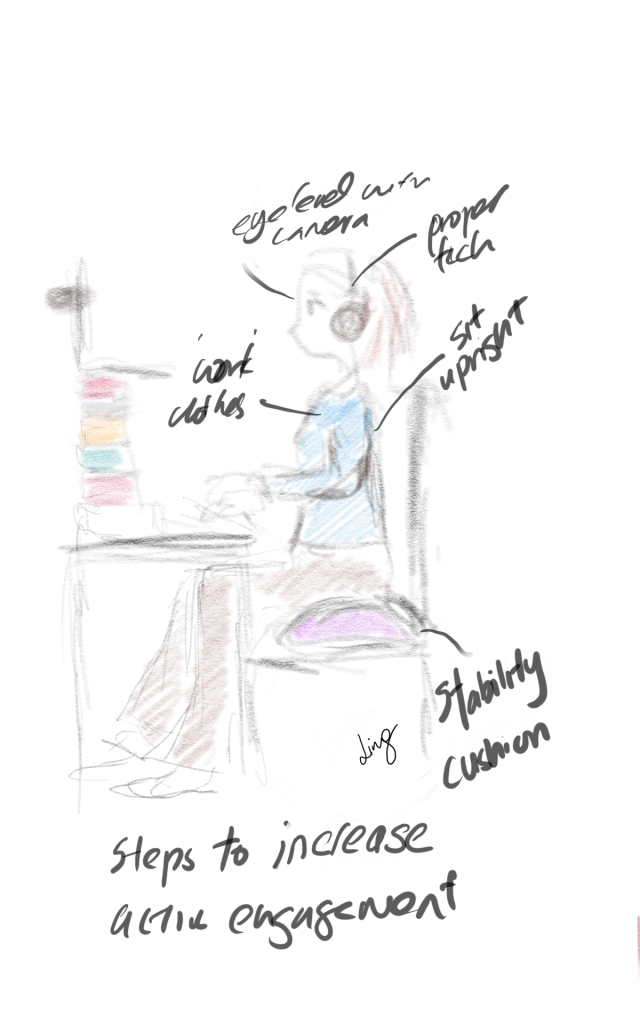We are more than halfway through the ONL212 course now, and while I still find the course highly interesting, I am definitely feeling tired. My first thought was to point the finger at the amount of group work required by ONL. We have group meetings twice a week and group projects every two weeks on top of course readings and seminars. After some reflection, I realize that it is probably not the group work that is making me tired. While I sometimes dread the start of my group meetings, I always leave the meetings energized by our discussions. I always learn new things and have my curiosity piqued.

I found Topic 3 on collaboration for learning timely given my fatigue. Researchers subscribing to the connectivism theory of learning argue that learning, specifically in the online context, is “most often accomplished through interaction and dialogue”. This extends beyond the online context. Collaboration appears conducive, if not necessary, to the development of critical thinking or higher order thinking skills which are associated with inquiry and argument. Kuhn and Dean define critical thinking as “awareness of one’s own thinking” and “reflection on the thinking of self and others as an object of cognition”. If we hope for our students to embrace learning and critical thinking as a lifelong endeavour, we should equip them for collaboration beyond our courses. We should strive to create educational settings that encourage “group connectivity and collaboration experiences” that enable students to attain the comfort and skills needed to construct and participate in “learning communities and social networks”.
How can educators design courses that encourage a willingness and ability in learners to collaborate for learning? Siemens’ description of the four-stages of learner-learner interaction is particularly interesting (communication, collaboration, cooperation, community). Courses should be designed to incorporate group tasks that facilitate progressively richer interactions and the eventual construction of a community where participants are united by “a common purpose”. Brindley, Walti, and Blaschke suggest that instructors can do so by ensuring students have skills needed for effective collaboration, designing the course to afford a good balance between structure and learner autonomy, nurturing a sense of community, monitoring group work, making the task relevant for learners, providing sufficient time for collaboration to develop.
Of particular interest to me are the skills needed for collaboration. The ability to work in groups or collaborate is often taken for granted; there is an assumption that everyone has the know-how to work with others and if someone doesn’t work well with others, this person is just being uncooperative. Roy identifies a long list of social, emotional, and technological skills required for individuals to work well in online collaborative teams or Virtual Collaboration Teams (VCTs). These include communication skills (e.g. use of simple language, ability to deal with ambiguity) and relationship-building skills (e.g. ability and willingness to motivate others, a positive attitude to group member diversity). If students are expected to collaborate as part of the learning process, educators should also take steps to equip students with the skills needed for collaboration.

Studies show that for effective learning, those learning cannot merely be passive watchers but need to be active participants. Peper, Wilson, Martin, Rosegard, and Harvey suggest various steps that educators and learners can take to ensure effective online engagement and learning (e.g. nod or shake your head to ensure facial and body feedback, solicit active feedback through polls/chat, sit up straight rather than slouch to activate positive memories and feelings, slot in movement breaks). They also highlight the need to ensure that students receive information on how active participation improves learning and how they can be more active participants. Their interesting research also pointed to the possible source of my fatigue: body posture and vision stress.
Time for me to start using the second-hand stability cushion I got a few weeks ago.
Wow, thank you! This post goes to my bookmarks as a neat summary of collaborative skills and requirements. I like the way collaboration take form of knowledge or skill that can be learned, and that can be structured into skill developing process. Often, as you mention, collaboration is abandoned for further investigation as a mystery and “talent”. But as I think you put forward, I do think we can approach collaboration methodically, strategically and professionally.
LikeLiked by 1 person
Thanks for the encouraging words, Peter. I find it motivating to know that collaboration and engagement skills can be learned. Great to know things like patience, communication, and empathy are not ‘natural’ or only for those with such ‘gifts’ but can be learned through knowledge, observation, and practice. Am definitely trying to improve mine. Am learning a lot from how you and Miriam facilitate our sessions.
LikeLike
Thank you for this excellent post, I totally agree with Peter! Your post is bookmarked! I am impressed with the amount of content and resources you are able to process each time! I really get it that it is tiring… I also see a parallel to the silent assumption that collaboration is “natural” and that one should be able to just do it: it is the intuition often wished for concerning tools and software. I think the disappointing truth is that there is none, you have to learn your way through tools and designs, as well as collaboration, just as you put it, Cheah!
LikeLike
Thanks for the kind comments! Actually, I have also learned a lot from observing you and Peter in action. Group facilitating and coaching is another very important skill for educators (in fact for everyone) to have these days.
LikeLike
What a great post! You are both personal and reflecting in your way of writing and I love that.
I agree with you that our group meeting gives energy and I always leave them with a lot of inspiration and new thoughts. Collaboration is difficult. It is not just that you have to be active, but as you write, you need both required communication skills and social skills to fit in to a group work. I find that important and one thing that is hard to manage in an online context and that is why it is so important to put effort into design and tools to use for collaboration.
LikeLike
Thanks for the encouragement observation! Yes, I find it is easy to equate collaboration with just “being active” but being a constructive collaborator requires much more. Sometimes too much activity can undermine collaboration.
LikeLike
I enjoyed your post. It was very down to earth in terms of the content that reflects what educators grapple. Your content is also very well researched and useful. Thank you!
LikeLiked by 1 person
Thanks for your kind comment!
LikeLike